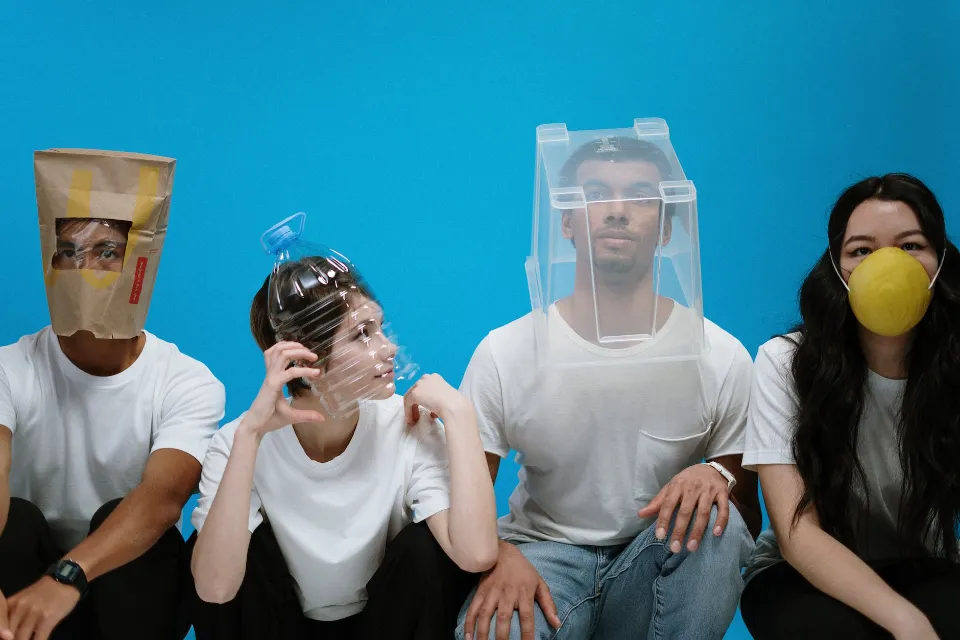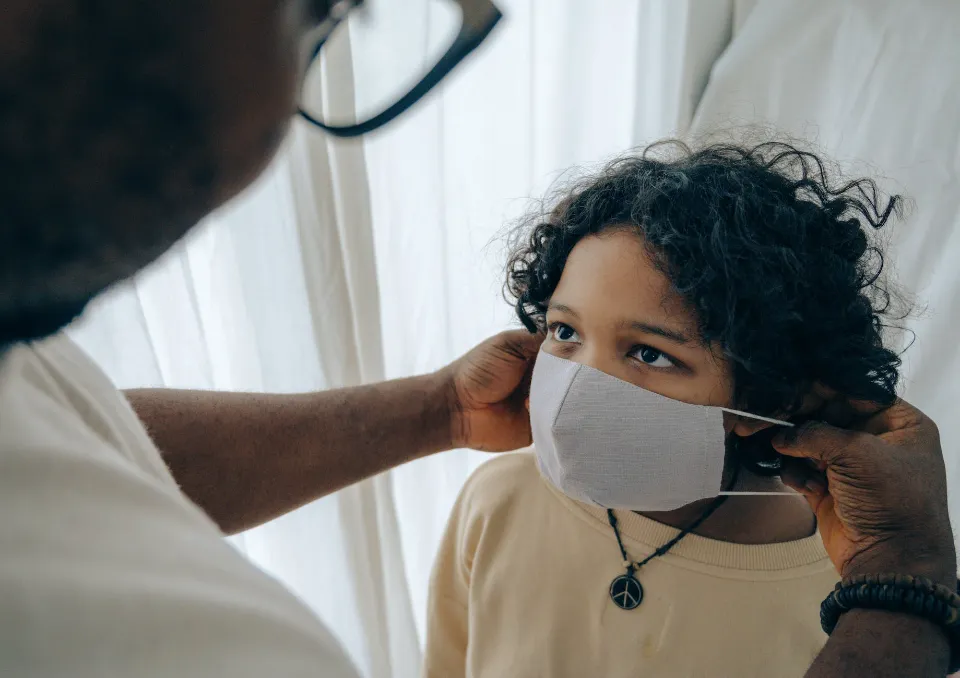When they contract COVID-19, most people experience mild to moderate symptoms like coughing, fever, and shortness of breath. But some who catch COVID-19 get severe pneumonia in both lungs. COVID-19 pneumonia is a severe condition that can be fatal.
Please review the information below to determine if you have pneumonia.
What is Pneumonia?
The tiny air sacs inside your lungs become inflamed as a result of the lung infection known as pneumonia. There could be so much fluid and pus inside of them that breathing becomes difficult. You might also feel extremely tired, have chills, a fever, chest pain, and severe shortness of breath.
Your doctor might advise painkillers that lower fever and cough medicine. You might need to visit the hospital in the most extreme circumstances if you need a ventilator to assist you in breathing.
As a side effect of viral infections like COVID-19, the flu, or even a simple cold, pneumonia can develop. But it can also be brought on by bacteria, fungi, and other microorganisms.
How to Tell If You Have Covid Pneumonia?
Pneumonia occurs when a bacterial or viral infection causes significant damage and inflammation in the lungs. It becomes difficult for a person to breathe as a result of the fluid and debris build-up, sometimes to the point where oxygen therapy or ventilator support is necessary. Pneumonia can develop into a very serious, potentially fatal condition regardless of the bacteria or virus that is responsible.

The coronavirus that causes COVID-19, which results in COVID pneumonia, harms the lungs.
When COVID pneumonia develops, it causes additional symptoms, such as:
- Fatigue
- Chills
- Nausea or vomiting
- Diarrhea
- Belly pain
- Muscle or body aches
- A headache
- Loss of smell or taste
- A sore throat
- Congestion or a runny nose
- Pinkeye
- Skin rashes
- Shortness of breath
- Increased heart rate
- Low blood pressure
What’s more is that COVID pneumonia often occurs in both lungs, rather than just one lung or the other. A severe form of lung failure known as acute respiratory distress syndrome (ARDS) can also be brought on by the widespread inflammation that some COVID-19 patients experience.
COVID-19 can short-term lung damage, just like other respiratory infections that cause pneumonia. The damage may persist for a long time in more serious situations. In fact, early data is showing that up to a third of COVID pneumonia patients have evidence of scarring on X-rays or lung testing a year after the infection.
Your doctor can diagnose COVID-19 pneumonia based on your symptoms and imaging studies (x-rays)>
Pneumonia caused by COVID-19 may also be detected in blood tests. These include low lymphocytes and elevated C-reactive protein (CRP). Perhaps there isn’t enough oxygen in your blood. Patchy areas of lung damage in both of your lungs could be detected by a chest CT scan. Doctors call this “ground glass.”
Who is Most Likely to Get COVID Pneumonia?
You’re at an increased risk of getting very sick with COVID-19, including COVID pneumonia, if you:
- Are over 65.
- Are pregnant.
- smoke or once smoked.
- acquired a blood or organ stem cell transplant.
You’re also at an increased risk if you’re living with:
- a hemophilia or a blood condition like sickle cell anemia or thalassemia.
- Cancer.
- Cerebrovascular disease, such as stroke.
- Hepatitis, cirrhosis, and nonalcoholic fatty liver disease (NAFLD) are a few examples of chronic kidney or liver disease.
- Chronic lung conditions such as asthma, chronic obstructive pulmonary disease (COPD), pulmonary fibrosis, pulmonary hypertension, pulmonary embolism, and others.
- Cystic fibrosis.
- Alzheimer’s disease, dementia, or other neurological disorders.
- (Type 1 or Type 2) diabetes.
- Down syndrome, cerebral palsy, or other congenital disorders.
- a heart condition like heart failure, coronary artery disease, or high blood pressure (hypertension).
- HIV/AIDS or a weakened immune system.
- such as schizophrenia spectrum disorders or depression, is a mental health condition.
- Obesity.
- substance use disorders (such as alcohol, opioid, or cocaine use disorder).
- Tuberculosis.
What is the Recovery Time for COVID Pneumonia?
Whatever the cause, recovering strength after pneumonia can take several weeks to many months.
Your body must first repair the damage to the lungs caused by COVID pneumonia, then it must remove any fluid or debris that is left over, and finally it must deal with scarring until the tissue is completely healed over. All of these processes come with uncomfortable side effects.
The average recovery period lasts between three and six weeks for the 15% of infected people who experience moderate to severe COVID-19, necessitate hospitalization for a few days, and require oxygen.

Recovery may take much longer for the 5% of patients who experience severe or critical illness.
Everyone’s recovery is unique and depends on:
- Your overall health
- Whether you have preexisting conditions
- The severity of your infection
If you are recovering from COVID pneumonia and experiencing persistent problems, I recommend seeing your doctor for a follow-up evaluation. If it takes you a while to recover, your doctor might suggest a specialized program to help you get back on track, like pulmonary rehabilitation.
How to Prevent COVID-19 Pneumonia?
If you’re in a high-risk group for COVID-19 pneumonia, take these steps to prevent infection:
- Wash your hands frequently. Spend at least 20 seconds washing with soap and water.
- If you are unable to wash your hands, sanitize them with a hand gel that contains at least 60% alcohol. Until your hands are completely dry, rub it all over them.
- Till your hands have been thoroughly cleaned, try to avoid touching your face, mouth, or eyes.
- Steer clear of sick people. Keep to yourself and try to stay away from people.
- If you have to go outside, put on a face mask. According to the CDC, snug-fitting respirator masks (like N95 and KN95 models) offer superior protection to other types of masks.
- Surfaces in your home that you use frequently, like countertops and keyboards, should be cleaned and disinfected on a regular basis.
While there are COVID vaccines now available, they do not protect you from pneumonia. Instead of the coronavirus, the pneumonia vaccine defends against a specific type of bacteria. Still, it can support your overall health, especially if you’re older or have a weak immune system. Consult your doctor to determine whether you need either vaccine.
Summary
If you experience any of these symptoms, please get medical help right away because the COVID-19 Pneumonia pandemic is still ongoing. Please take additional precautions if someone close to you has the virus.
FAQs
When Should I See a Healthcare Provider?
Get tested for COVID-19 if you experience any COVID-19 symptoms, such as a sore throat, fever, cough, or shortness of breath. If you have concerns about how to manage your symptoms or if you are at risk for severe COVID-19, speak with your healthcare provider.
When Should I Go to the Emergency Room?
If you have COVID-19 and any new or worsening symptoms, especially if you’re having trouble breathing, feeling disoriented, having trouble staying awake, or your skin, lips, or nails appear blue, go to the emergency room right away or dial 911.



